Installation and Maintenance of Heat Pumps
7 Key Steps to Maintaining a High-Efficiency Heat Pump: Preventive Maintenance, DIY Tips, Service Schedules, Troubleshooting Guide, Life Expectancy, Reducing Wear and Tear, Replacement Parts
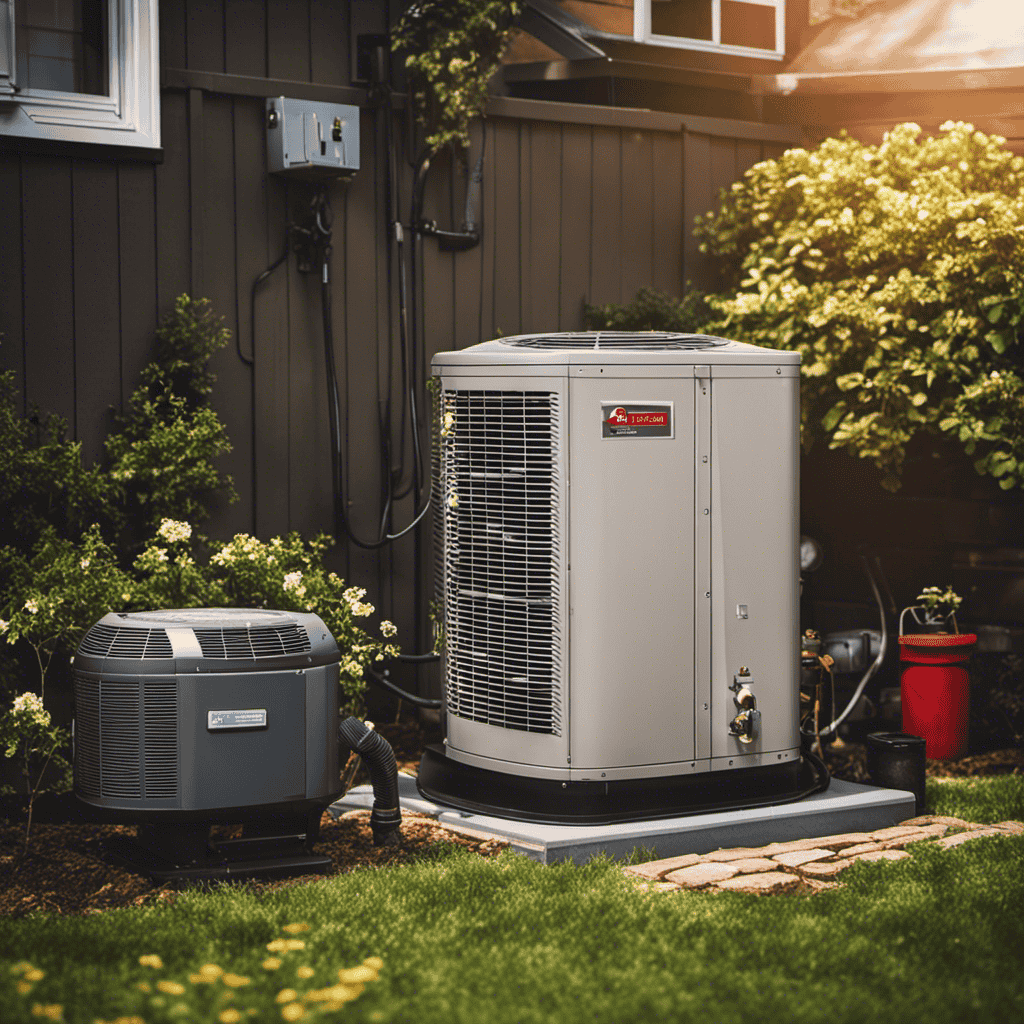
Did you know that heat pumps can last up to 15 years with proper maintenance?
At our company, we believe in serving our customers by offering the best tips and advice to keep your heat pump running efficiently.
In this article, we will share 7 key steps to maintaining a high-efficiency heat pump.
From preventive maintenance and DIY tips to troubleshooting common issues and using top-notch replacement parts, we’ve got you covered.
Let’s ensure your heat pump keeps serving you for years to come!
Key Takeaways
- Regular preventive maintenance is essential for maximizing the efficiency and lifespan of a high-efficiency heat pump.
- DIY tasks such as cleaning or replacing air filters, inspecting and cleaning coils, and lubricating moving parts can help maintain the heat pump’s energy efficiency and overall performance.
- Following a service schedule, which typically includes professional maintenance at least once a year, helps identify and address potential issues before they worsen.
- Strategies for reducing wear and tear and prolonging the heat pump’s lifespan include setting the thermostat to a moderate temperature, utilizing programmable thermostats, and using high-quality replacement parts.
Importance of Preventive Maintenance
Why is preventive maintenance important for maintaining a high-efficiency heat pump?
Preventive maintenance is crucial for keeping your heat pump in optimal condition and preventing breakdowns. By regularly servicing your heat pump, you can ensure that it operates at its maximum efficiency, saving you energy and money in the long run.
Regular maintenance not only helps to prevent breakdowns but also ensures that your heat pump operates at its peak performance. It involves tasks such as cleaning or replacing air filters, inspecting and cleaning the evaporator and condenser coils, checking refrigerant levels, and lubricating moving parts. These measures help to reduce wear and tear on the system, which can lead to costly repairs or even premature system failure.
Engaging in preventive maintenance is a cost-effective way to prolong the life of your high-efficiency heat pump. By identifying and addressing minor issues early on, you can prevent them from escalating into major problems. This saves you from expensive repairs down the line and ensures that your heat pump operates at its full potential for years to come.
Now that we understand the importance of preventive maintenance, let’s explore some effective DIY tips for heat pump maintenance.
Effective DIY Tips for Heat Pump Maintenance
Let’s start by looking at some simple DIY tips to effectively maintain your heat pump. Regular heat pump cleaning is crucial for maintaining its energy efficiency and overall performance. Here are three key DIY tips to keep your heat pump running smoothly:
-
Clean or replace air filters: Dirty air filters restrict airflow, reducing the efficiency of your heat pump. Clean or replace the filters every one to three months to ensure optimal performance.
-
Keep outdoor unit clear: Clear any debris, leaves, or branches from around the outdoor unit. This allows for proper airflow and prevents the unit from working harder than necessary.
-
Check and clean the coils: Over time, dirt and debris can accumulate on the coils, reducing the heat pump’s efficiency. Regularly inspect the coils and clean them using a soft brush or vacuum cleaner to remove any buildup.
By following these simple DIY tips, you can ensure that your heat pump operates at its best, providing efficient heating and cooling for your home. Regular maintenance not only extends the lifespan of your heat pump but also helps you save on energy costs. Remember to refer to your manufacturer’s manual for specific maintenance instructions and safety precautions.
| DIY Tips for Heat Pump Maintenance | Description |
|---|---|
| Clean or replace air filters | Dirty air filters restrict airflow, reducing efficiency. |
| Keep outdoor unit clear | Clear debris to allow proper airflow and prevent strain on the unit. |
| Check and clean the coils | Remove dirt and debris from the coils to improve efficiency. |
Creating and Following a Service Schedule
We recommend creating and following a regular service schedule to ensure the efficient operation and longevity of your heat pump. Service schedule management is essential in maintaining the optimal performance of your heat pump and preventing costly repairs in the future. By following a service schedule, you can identify and address any potential issues before they worsen, saving you time, money, and inconvenience.
To effectively manage your service schedule, it’s advisable to seek professional maintenance services. These experts have the knowledge, skills, and tools to perform a thorough inspection and maintenance of your heat pump. They can identify any worn-out parts, clean and lubricate components, and check for any leaks or refrigerant issues. Professional maintenance services can also ensure that your heat pump is working at its highest efficiency, saving you energy costs.
To create a service schedule, consider the manufacturer’s recommendations regarding routine maintenance tasks and intervals. Typically, it’s recommended to have your heat pump serviced at least once a year. However, depending on your specific situation, such as high usage or extreme weather conditions, more frequent maintenance may be necessary.
Troubleshooting Common Heat Pump Issues
To effectively troubleshoot common heat pump issues, we should start by checking the thermostat and ensuring that it’s set correctly. The thermostat controls the temperature settings and if it isn’t set properly, it can cause the heat pump to malfunction. If the heat pump isn’t turning on or providing the desired heating or cooling, it could be due to a faulty thermostat.
Another common issue is inadequate airflow. This can be caused by dirty air filters, blocked vents, or a malfunctioning blower motor. It’s important to regularly clean or replace air filters to ensure proper airflow. Additionally, check for any obstructions in the vents and make sure they’re open and unobstructed. If the blower motor isn’t working, it may need to be repaired or replaced.
Heat pumps may also experience refrigerant leaks, which can lead to reduced cooling or heating performance. If you suspect a refrigerant leak, it’s best to contact a professional technician to handle the repair. They’ll be able to locate and fix the leak, as well as recharge the refrigerant to restore optimal performance.
Other common issues include unusual noises, such as grinding or squealing sounds, which may be indicative of worn-out bearings or belts. In such cases, it’s recommended to contact a professional technician for repair or replacement. Additionally, if the heat pump is cycling on and off frequently, it could be a sign of a malfunctioning compressor or thermostat.
Understanding the Life Expectancy of a Heat Pump
When it comes to understanding the life expectancy of a heat pump, there are several factors that come into play. These factors include the quality of the equipment, the level of maintenance performed, and the climate in which the heat pump is operating.
Factors Affecting Life Expectancy
Since a heat pump’s life expectancy can be influenced by various factors, it’s important to understand what these factors are.
Factors influencing the longevity of a heat pump include regular preventive maintenance, proper installation, and usage patterns.
Regular maintenance, such as cleaning or replacing filters, lubricating moving parts, and inspecting electrical connections, can significantly extend the life of a heat pump.
It’s also crucial to ensure that the heat pump is installed correctly, following manufacturer guidelines and industry standards.
Additionally, the way a heat pump is used can impact its life expectancy. Consistent usage at optimal temperatures and avoiding excessive strain on the system can help reduce wear and tear, ultimately prolonging the heat pump’s life.
Prolonging Heat Pump Lifespan
Regular maintenance is essential for prolonging the lifespan of a heat pump. By following a few simple steps, you can ensure that your heat pump operates efficiently for years to come.
Here are some key ways to prolong the lifespan of your heat pump:
-
Schedule regular maintenance: Arrange for professional maintenance at least once a year to identify and address any potential issues.
-
Clean and replace filters: Dirty filters can restrict airflow and reduce efficiency. Clean or replace them regularly to keep your heat pump running smoothly.
-
Consider energy-efficient options: Investing in an energy-efficient heat pump can reduce wear and tear on the system, saving you money on both energy bills and maintenance costs.
By implementing these measures, you can extend the life of your heat pump and avoid unnecessary expenses.
Regular maintenance and energy-efficient options will ensure that your heat pump operates at its best, providing you with reliable heating and cooling for many years.
Strategies for Reducing Wear and Tear on Your Heat Pump
To reduce wear and tear on your heat pump, it’s important to maintain optimal temperature settings. Setting the thermostat at a moderate temperature will prevent the heat pump from constantly cycling on and off, reducing strain on the system.
Additionally, regular filter maintenance is essential in preventing dirt and debris from clogging the system, ensuring proper airflow and efficient operation.
Optimal Temperature Settings
We can maximize the lifespan of our heat pump by setting the temperature at an optimal level that minimizes wear and tear. Here are some energy-saving tips to help you achieve this:
-
Set the thermostat to a comfortable yet efficient temperature. The optimal temperature range for heating is between 68-72 degrees Fahrenheit and for cooling is between 74-78 degrees Fahrenheit.
-
Utilize programmable thermostats to adjust the temperature when you’re away from home, ensuring energy isn’t wasted.
-
Take advantage of natural heat sources, such as opening curtains during the day to let in sunlight and closing them at night to retain heat.
By following these strategies, you can reduce the strain on your heat pump, prolong its lifespan, and save on energy costs.
Now let’s move on to the next important step: regular filter maintenance.
Regular Filter Maintenance
To reduce wear and tear on our heat pump, we need to regularly maintain the filters. Regular maintenance of filters is essential for optimal performance and energy efficiency of the heat pump. Over time, dust, dirt, and debris accumulate in the filters, reducing airflow and forcing the heat pump to work harder. This can result in increased energy consumption and decreased overall performance.
To prevent this, it’s recommended to clean or replace the filters every 1-3 months, depending on the manufacturer’s guidelines and the level of air pollution in the area. Cleaning the filters involves removing them from the unit, washing them with mild detergent and water, and allowing them to dry completely before reinstalling. If the filters are damaged or heavily soiled, they should be replaced with new ones.
Regular filter maintenance ensures that the heat pump operates efficiently, extends its lifespan, and reduces the need for costly repairs.
Using High-Quality Replacement Parts for Maintenance and Repairs
How can high-quality replacement parts be used for maintenance and repairs of a heat pump?
Using high-quality replacement parts is essential for the proper maintenance and repair of a heat pump. These parts are designed to meet the specific requirements of the heat pump system, ensuring optimal performance and longevity.
Here are three reasons why using high-quality replacement parts is crucial for cost-effective maintenance:
-
Enhanced Performance: High-quality replacement parts are manufactured to the highest standards, ensuring compatibility and efficiency with your heat pump system. These parts are designed to deliver consistent and reliable performance, improving the overall efficiency of your heat pump and reducing energy consumption.
-
Longevity and Durability: Investing in high-quality replacement parts ensures that your heat pump operates smoothly for an extended period. These parts are made from durable materials that can withstand the demands of continuous operation, reducing the need for frequent replacements and repairs.
-
Warranty Coverage: Many high-quality replacement parts come with warranty coverage, providing peace of mind and protection against defects or malfunctions. This warranty coverage can save you money on potential replacement costs and ensure that any issues with the replacement parts are resolved promptly.
Frequently Asked Questions
Can a Heat Pump Be Used for Both Heating and Cooling Purposes?
Yes, a heat pump can be used for both heating and cooling purposes. It’s designed to transfer heat from one location to another, making it an efficient solution for both hot and cold climates.
By utilizing the same system for both heating and cooling, a heat pump can provide heating and cooling efficiency, resulting in energy savings.
This versatility makes it a popular choice for homeowners looking to maximize comfort while minimizing energy consumption.
How Often Should the Air Filters in a Heat Pump Be Replaced?
Regular air filter maintenance is crucial for the efficient operation of a heat pump. It’s important to replace the air filters at recommended intervals to ensure optimal performance and prevent clogs. The frequency of filter replacement depends on various factors such as the type of filter, indoor air quality, and usage.
Generally, it’s recommended to replace air filters every 1-3 months. Regular filter replacement helps maintain clean air, improves indoor air quality, and extends the life of the heat pump.
Are There Any Specific Safety Precautions to Follow While Performing DIY Maintenance on a Heat Pump?
When performing DIY maintenance on a heat pump, it’s important to follow specific safety precautions. These precautions ensure your safety and the proper functioning of the heat pump.
Some key safety measures include:
- Turning off the power supply before starting any maintenance work
- Wearing protective gear such as gloves and safety glasses
- Being cautious of sharp edges and moving parts
What Are Some Signs That Indicate a Heat Pump May Be Reaching the End of Its Life Expectancy?
When a heat pump nears the end of its life expectancy, there are several signs of failure to watch for. These include:
- Decreased heating and cooling efficiency
- Frequent breakdowns
- Strange noises
- Increased energy consumption
It’s important to address these issues promptly to prevent further damage and extend the lifespan of the heat pump.
Regular maintenance can help reduce wear and tear and ensure optimal performance. This includes:
- Cleaning filters and coils
- Checking refrigerant levels
- Lubricating moving parts
Can Using Low-Quality Replacement Parts for Maintenance and Repairs Cause Damage to the Heat Pump?
Using low-quality replacement parts for maintenance and repairs can have a negative effect on the performance and lifespan of your heat pump. These parts may not be built to the same standards as the original components, leading to increased wear and tear and potential damage.
It’s important to prioritize professional repairs and use high-quality replacement parts to ensure the optimal functioning of your heat pump and avoid costly repairs in the long run.
What Are the Key Steps for Maintaining a High-Efficiency Heat Pump?
Maintaining a high-efficiency heat pump requires a systematic approach. Firstly, ensure that the air filters are regularly cleaned or replaced to avoid clogs and ensure optimal airflow. Secondly, schedule an annual professional inspection to check for refrigerant leaks and ensure proper functioning. Lastly, consider installing a programmable thermostat to maximize energy efficiency and adjust temperature settings accordingly. Following these installing a high-efficiency heat pump step-by-step will help keep your system running smoothly and efficiently.
Conclusion
In conclusion, by following these seven key steps for maintaining a high-efficiency heat pump, you can ensure its optimal performance and longevity.
Remember, ‘an ounce of prevention is worth a pound of cure.’
Regular preventive maintenance, DIY tips, adhering to a service schedule, troubleshooting issues, reducing wear and tear, and using high-quality replacement parts are all essential for keeping your heat pump in top shape and enjoying its benefits for years to come.
Installation and Maintenance of Heat Pumps
Unmasking Myths: Heat Pumps Versus Traditional Heaters

Dear audience, it is now the moment to reveal the reality. In the ongoing debate between heat pumps and traditional heaters, there have been numerous false beliefs and misunderstandings circulating.
But fear not, for today we will dismantle the falsehoods and reveal the facts. Join us as we delve into the world of energy efficiency, cost comparison, environmental impact, and the performance of heat pumps.
Prepare to be enlightened and empowered as we uncover the true potential and long-term savings of heat pump technology.
Key Takeaways
- Heat pumps are more energy efficient than traditional heaters, producing up to three units of heat per unit of electricity consumed.
- Heat pumps have a lower carbon footprint and contribute to reducing greenhouse gas emissions compared to traditional heaters.
- Heat pumps offer long-term savings due to lower installation expenses, lower energy bills, and reduced maintenance costs.
- Heat pumps are reliable, durable, and provide consistent heating and cooling performance throughout the year.
Energy Efficiency: Understanding the Numbers
Let’s delve into the numbers and understand the energy efficiency of heat pumps compared to traditional heaters.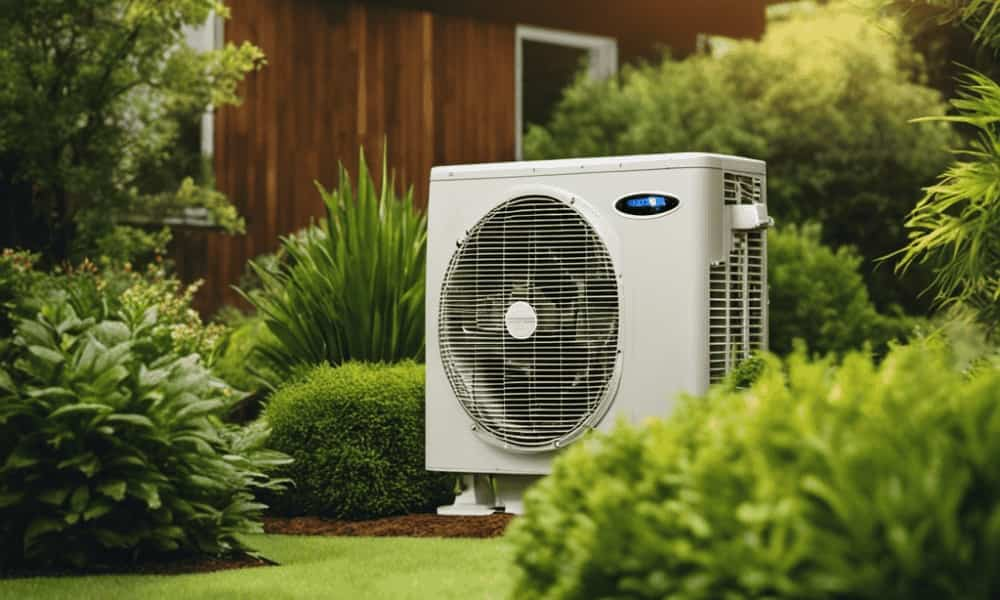
When it comes to energy savings, heat pumps have a clear advantage. They’re able to transfer heat from the air or ground, rather than generating heat directly. This means that for every unit of electricity consumed, heat pumps can produce up to three units of heat.
On the other hand, traditional heaters, such as furnaces, burn fuel to create heat, resulting in lower energy efficiency.
Additionally, heat pumps have a lower carbon footprint compared to traditional heaters. Since they rely on renewable energy sources, such as air or ground heat, they release fewer greenhouse gas emissions.
Cost Comparison: Heat Pumps Vs. Traditional Heaters
When comparing costs, heat pumps offer significant savings compared to traditional heaters. This is due to lower installation expenses and maintenance costs associated with heat pumps.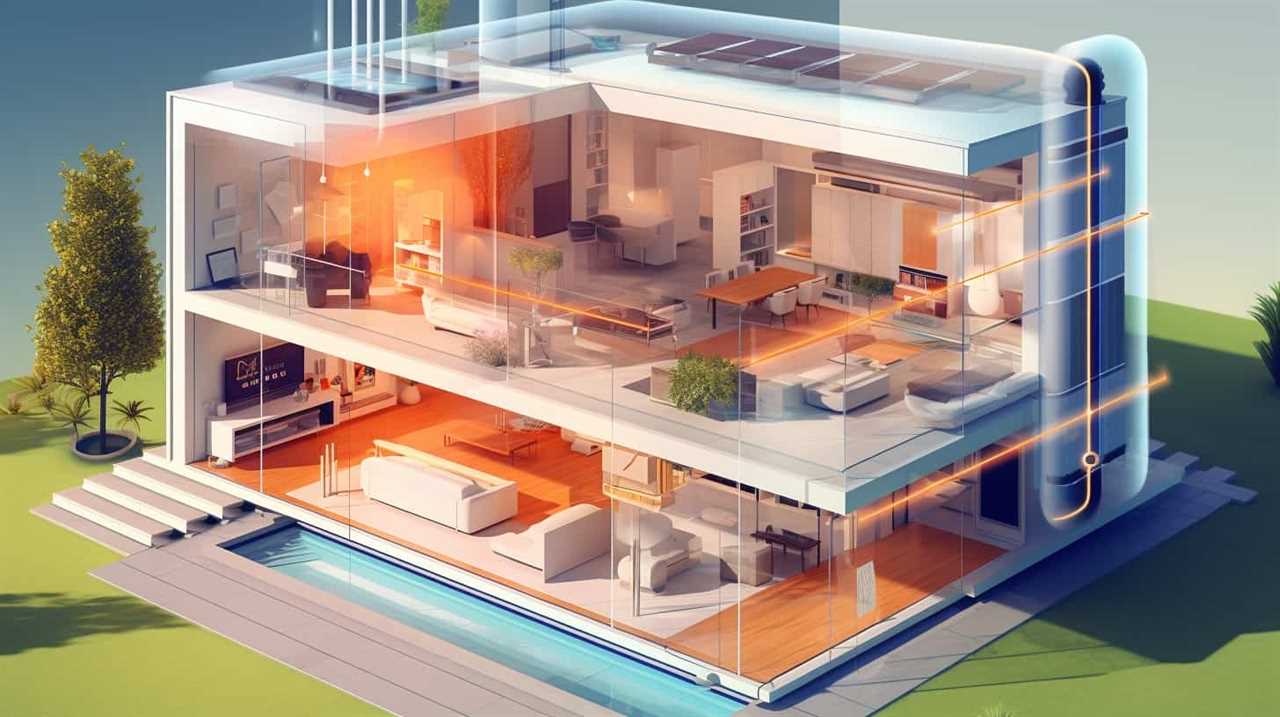
Here are three reasons why heat pumps are more cost-effective:
-
Lower installation expenses: Heat pumps require only one installation, as they serve both heating and cooling purposes. This eliminates the need for separate systems, saving you money on installation costs.
-
Reduced maintenance costs: Heat pumps have fewer moving parts compared to traditional heaters, resulting in lower maintenance needs and costs over time. This translates into long-term savings for homeowners.
-
Energy efficiency: Heat pumps are highly efficient, using less energy to produce the same amount of heat as traditional heaters. This means lower energy bills and more money in your pocket.
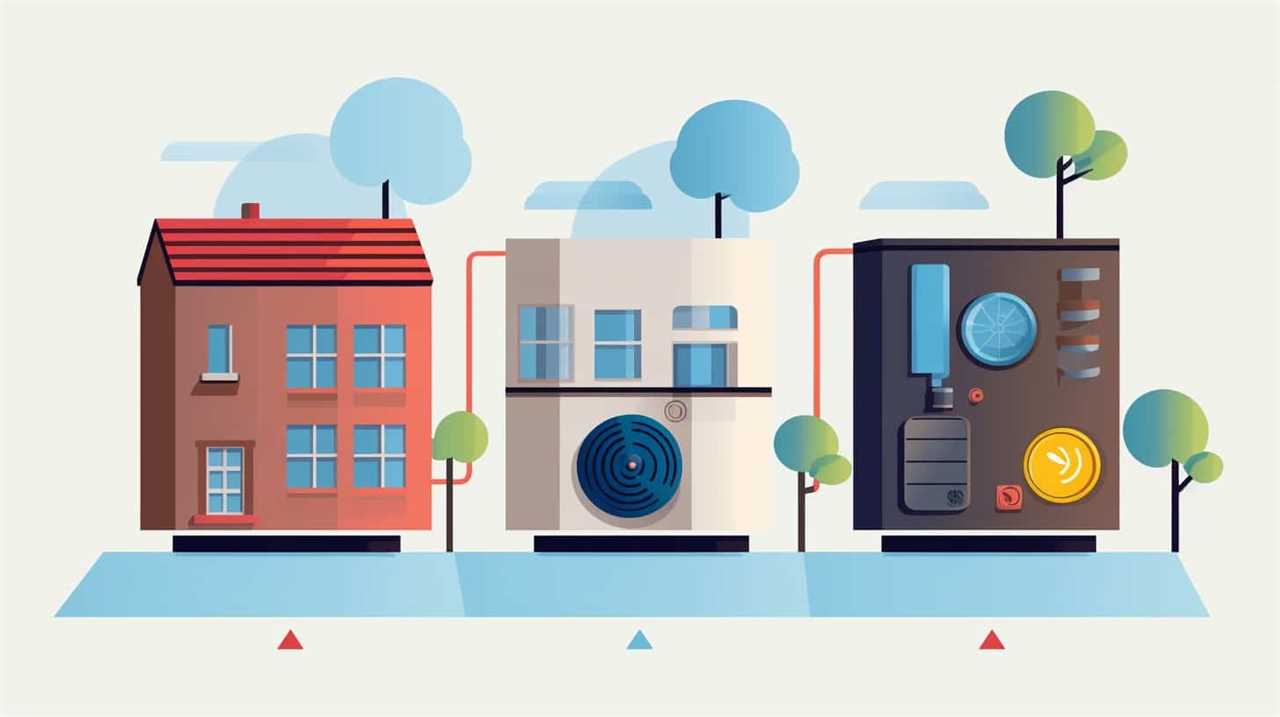
Environmental Impact: Assessing Electricity Usage
When considering the environmental impact of heat pumps versus traditional heaters, we need to assess their electricity usage.
Heat pumps are known for their energy efficiency, utilizing electricity to transfer heat rather than generating it. This results in lower electricity consumption compared to traditional heaters that rely on combustion.
By reducing the amount of electricity needed to heat a space, heat pumps contribute to a lower carbon footprint. The carbon footprint is a measure of the greenhouse gas emissions produced during the entire lifecycle of a product or service.
Since heat pumps have lower electricity consumption, they indirectly reduce the carbon emissions associated with electricity generation. This makes heat pumps a greener and more environmentally friendly option for heating homes and buildings.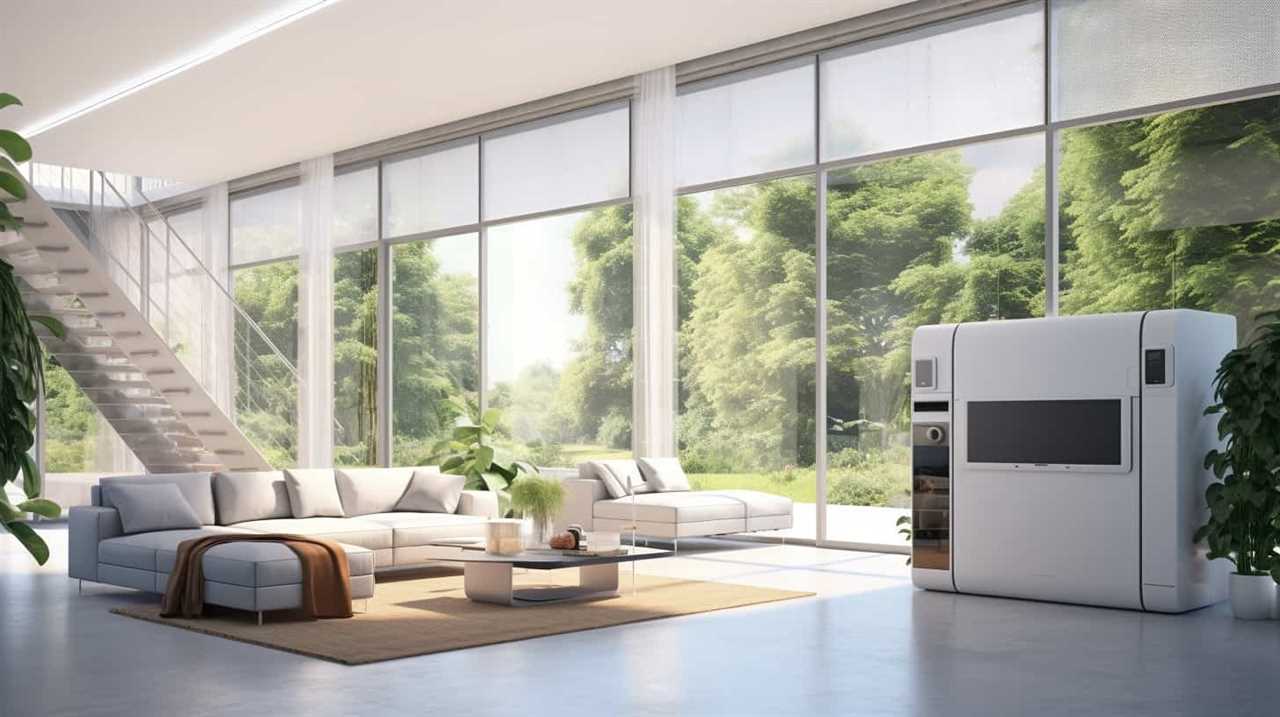
Heat Pump Performance: Debunking the Myths
We’ve tested and debunked the myths surrounding heat pump performance. Contrary to popular belief, heat pumps are reliable and offer efficient heating and cooling solutions. Here’s what you need to know:
-
Heat Pump Reliability: Heat pumps are designed to last for many years, providing consistent performance with proper maintenance. They’re built with durable components that can withstand various weather conditions.
-
Efficient Installation: Heat pump installation is a straightforward process that can be completed by professionals in a timely manner. It involves connecting the indoor and outdoor units, as well as installing the necessary ductwork. With proper installation, heat pumps can efficiently heat or cool your space.
-
Consistent Performance: Heat pumps offer consistent heating and cooling throughout the year. They’re designed to maintain a comfortable indoor environment, regardless of the outdoor temperature. With advanced technology and smart controls, heat pumps can adapt to changing weather conditions and provide consistent performance.
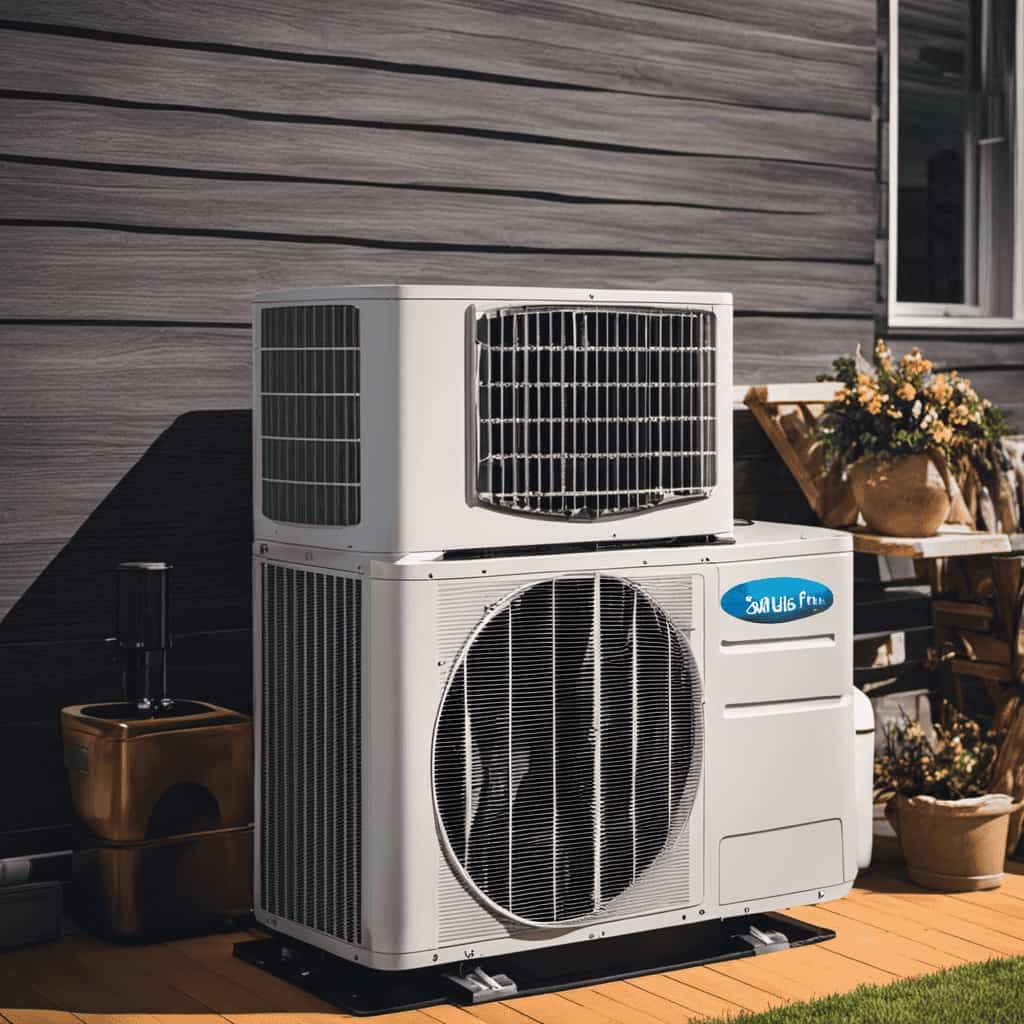
Long-Term Savings: Investing in Heat Pump Technology
Investing in heat pump technology can provide long-term savings for homeowners. Heat pumps are highly efficient systems that use electricity to transfer heat from one place to another. Unlike traditional heaters, which rely on burning fuel to generate heat, heat pumps use the ambient air or ground as a heat source. This means that they can provide heating and cooling for your home, making them a versatile option.
The long-term benefits of heat pumps include lower energy bills, reduced maintenance costs, and a smaller carbon footprint. While the initial investment may be higher than traditional heaters, the return on investment is significant over time. Homeowners can expect to see a decrease in their energy consumption and enjoy a more comfortable living environment.
Frequently Asked Questions
Are There Any Government Incentives or Rebates Available for Installing a Heat Pump?
Yes, there are government incentives and rebates available for installing a heat pump. These incentives are aimed at promoting energy savings and reducing carbon emissions. They vary depending on location and can help offset the cost of installation.
How Noisy Are Heat Pumps Compared to Traditional Heaters?
Heat pumps are quieter than traditional heaters, making them a more peaceful option for your home. Additionally, their efficiency can save you money on energy bills, giving you the freedom to spend your hard-earned cash elsewhere.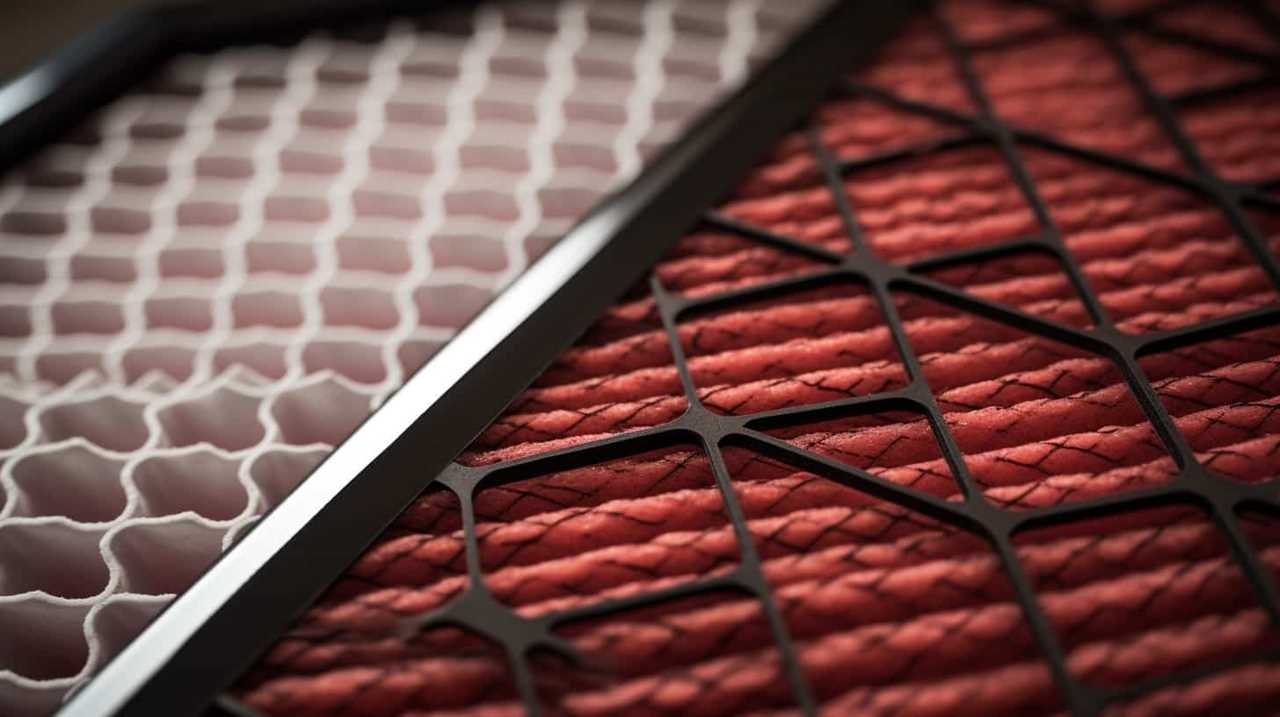
Can a Heat Pump Be Used for Both Heating and Cooling Purposes?
Yes, a heat pump can be used for both heating and cooling purposes. It is highly efficient and offers numerous benefits like energy savings, year-round comfort, and eco-friendliness.
What Is the Average Lifespan of a Heat Pump?
Heat pumps offer efficient heating and cooling, making them a versatile choice. The average lifespan of a heat pump can vary depending on maintenance, but with regular care, they can last 15-20 years. Regular maintenance increases their longevity and ensures optimal performance.
Are Heat Pumps Suitable for All Types of Homes and Climates?
Heat pumps are suitable for most homes and climates, but efficiency may vary. They can efficiently heat and cool, saving on energy costs. Installation costs can be high, but long-term savings can outweigh initial expenses.
Conclusion
In conclusion, heat pumps offer a more energy-efficient and cost-effective heating solution compared to traditional heaters.
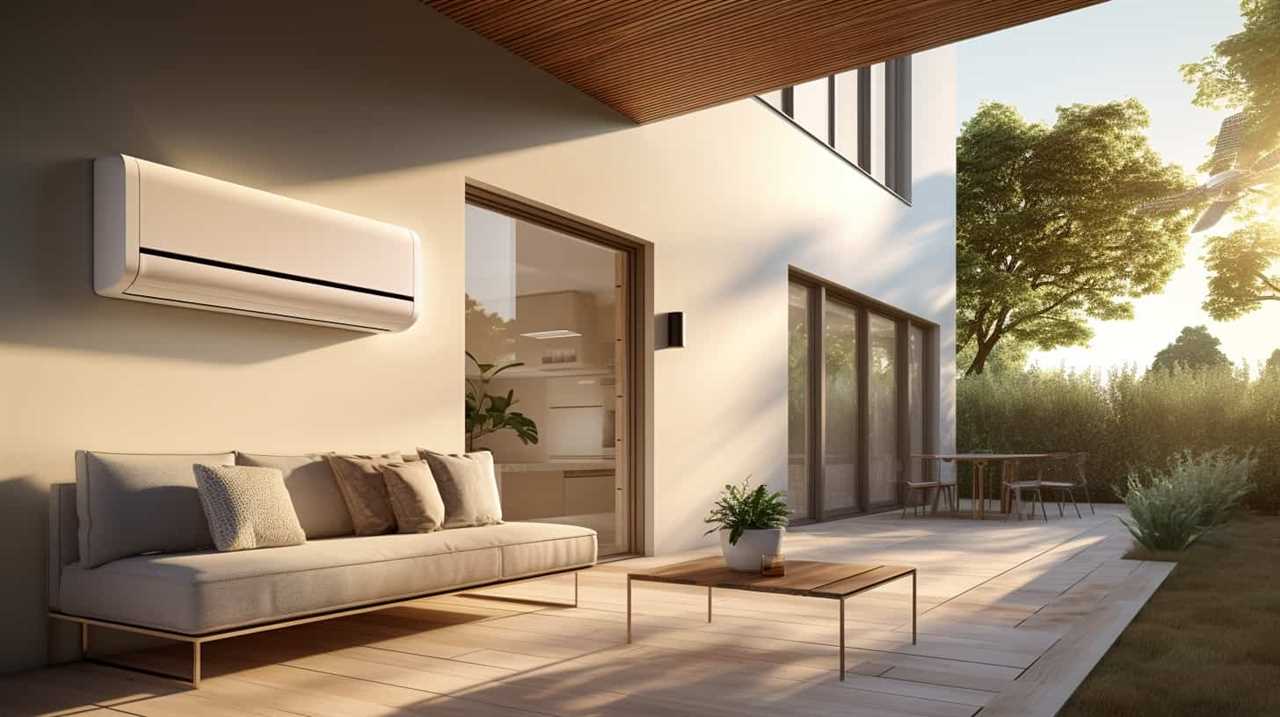
One interesting statistic to consider is that heat pumps can save up to 50% on energy costs compared to traditional heaters, leading to significant long-term savings.
By choosing heat pump technology, not only can we reduce our environmental impact, but we can also enjoy the benefits of lower utility bills.
It’s time to debunk the myths and embrace the efficiency of heat pumps.
Installation and Maintenance of Heat Pumps
Boost Your Heat Pump Efficiency With Green Energy

Are you seeking to optimize your heat pump’s effectiveness while lessening your environmental impact? Look no more!
In this article, we’ll show you how to boost your heat pump’s performance with the power of green energy. Imagine harnessing the sun’s rays or the wind’s power to heat and cool your home effectively.
We’ll explore renewable energy sources such as solar, wind, and geothermal, and provide practical tips on incorporating these solutions into your heat pump system.
Get ready to master energy-efficient heating and cooling!
Key Takeaways
- Green energy, such as solar and wind power, can significantly increase heat pump energy efficiency and reduce carbon footprint.
- Solar thermal systems and biomass heating are sustainable and environmentally friendly options for powering heat pumps.
- Incorporating solar power and wind energy into heat pump systems through photovoltaic panels and wind turbines can optimize energy utilization and reduce reliance on the grid.
- Geothermal heat pumps provide a cost-effective and energy-independent solution with high efficiency, long lifespan, and reduced reliance on fossil fuels.
The Benefits of Green Energy for Heat Pump Efficiency
We can maximize our heat pump efficiency by harnessing the benefits of green energy. Green energy refers to renewable energy sources that have a minimal impact on the environment. By using green energy to power our heat pumps, we can significantly increase their energy efficiency while reducing our carbon footprint.
One of the key benefits of green energy is its ability to reduce greenhouse gas emissions, as it produces little to no carbon dioxide during generation. This not only helps to combat climate change but also improves the overall sustainability of our energy consumption.
Additionally, green energy sources such as solar and wind power are abundant and readily available, making them a reliable and cost-effective option for powering our heat pumps.
Exploring Renewable Energy Sources for Heat Pumps
To optimize our heat pump efficiency, let’s explore renewable energy sources and how they can be used to power our heat pumps. Renewable energy sources provide a sustainable and environmentally friendly solution for heating our homes.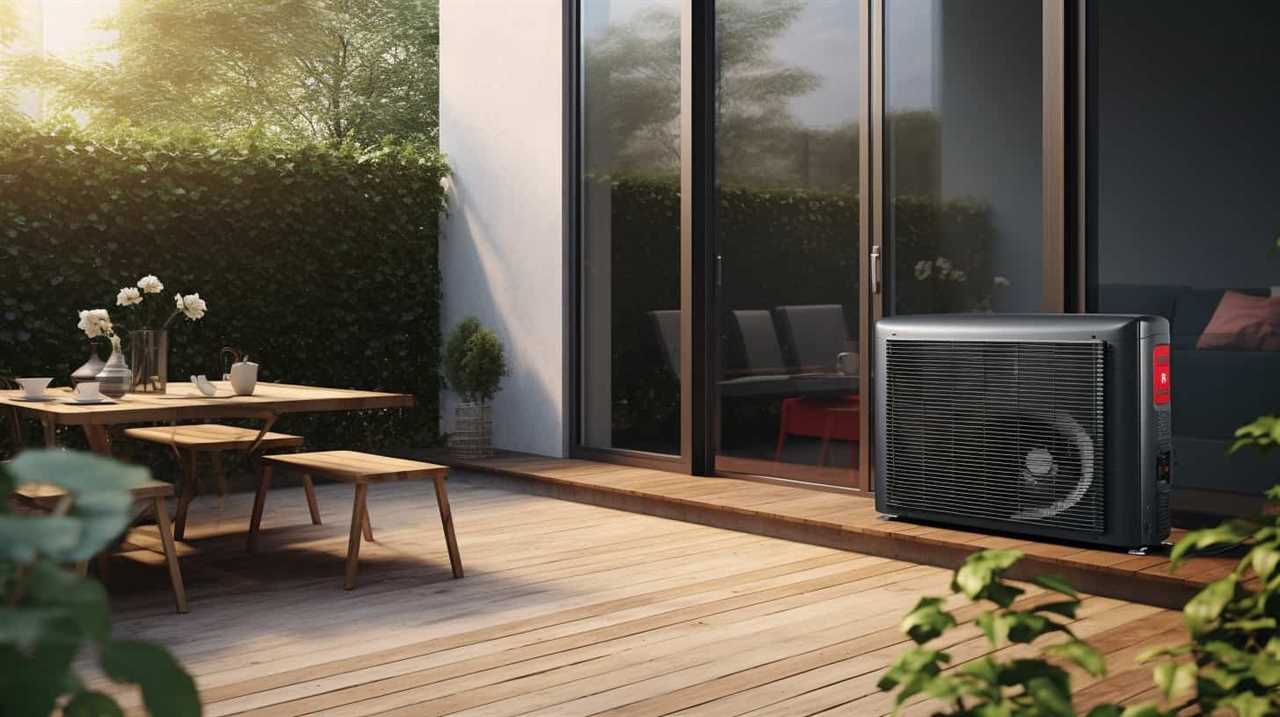
Two renewable energy sources that can be harnessed for heat pump operation are solar thermal and biomass heating.
Solar Thermal:
Solar thermal systems use the energy from the sun to heat water or a heat transfer fluid.
This heated fluid can then be used to power a heat pump, increasing its efficiency.
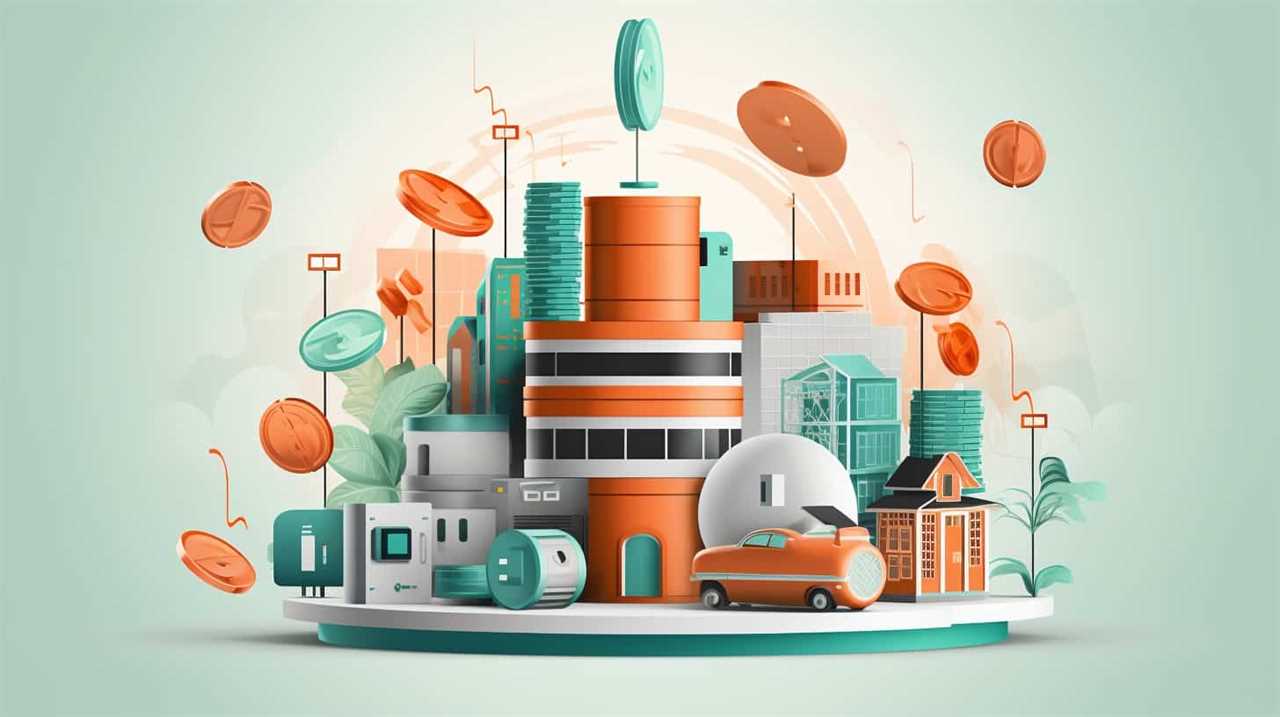
By utilizing solar thermal energy, we can reduce our dependence on traditional electricity sources and lower our carbon footprint.
Biomass Heating:
Biomass heating involves burning organic materials, such as wood pellets or agricultural waste, to produce heat.
This heat can then be used to power a heat pump, providing a renewable and sustainable energy source.
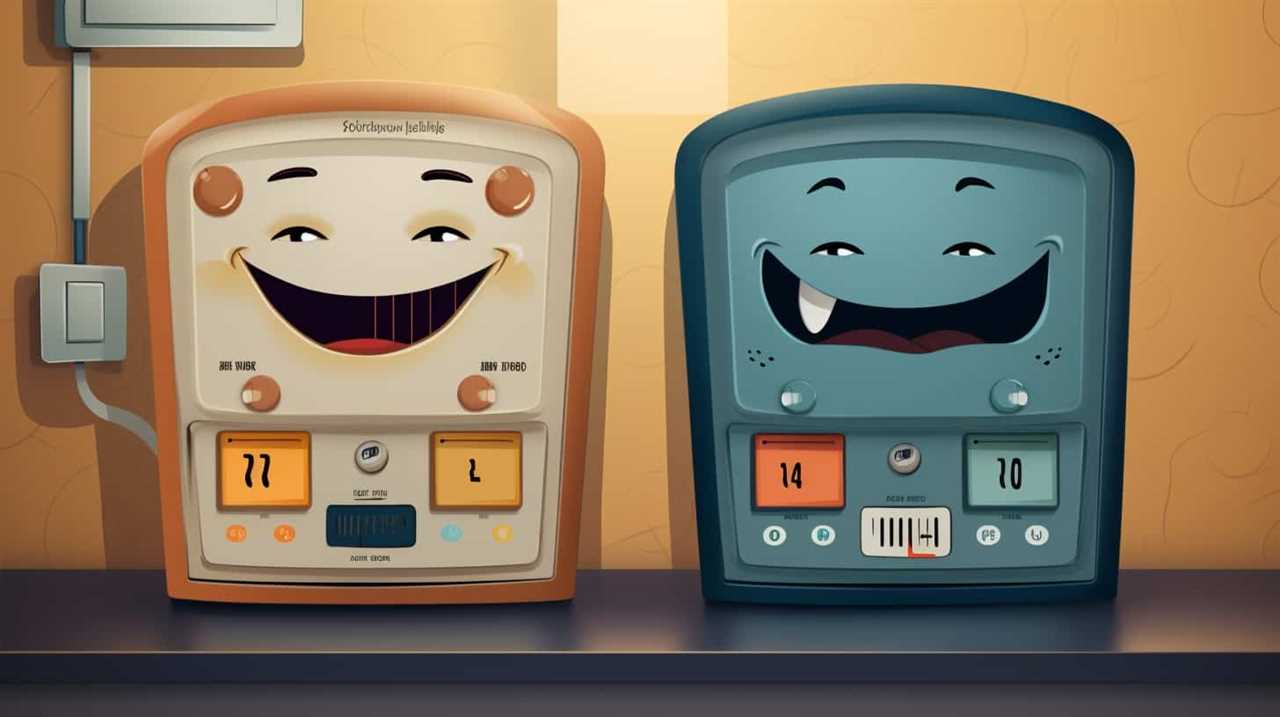
Biomass heating not only reduces greenhouse gas emissions but also supports local economies by utilizing locally sourced biomass materials.
How to Incorporate Solar Power Into Your Heat Pump System
By regularly utilizing solar power in conjunction with our heat pump system, we can significantly increase its efficiency.
One effective way to incorporate solar power into our heat pump system is by integrating photovoltaic panels. These panels convert sunlight into electricity, which can then be used to power the heat pump.
When installing the panels, it’s important to consider their placement and orientation for optimizing solar output. Placing them in a location with maximum sunlight exposure and angling them towards the sun can ensure that they generate the most electricity.

Additionally, it’s beneficial to connect the panels to a battery storage system, allowing any excess energy generated during the day to be stored and used during times when the sun isn’t shining.
Harnessing Wind Energy to Boost Heat Pump Performance
With the right equipment and strategic placement, we can effectively harness wind energy and use it to enhance the performance of our heat pump system. By installing wind turbines near our heat pump, we can tap into the power of the wind and convert it into electricity that can be used to run the heat pump.
Here are two ways to integrate wind energy into our heat pump system:
Utilize a wind turbine installation: Install a wind turbine close to our heat pump system to capture the maximum amount of wind energy. This will allow us to generate electricity that can power the heat pump, reducing our reliance on the grid and lowering our carbon footprint.

Combine wind and solar power: By combining wind and solar power, we can create a hybrid system that maximizes the use of renewable energy. During periods of low wind or at night, the solar panels can continue to provide electricity to the heat pump, ensuring uninterrupted operation.
Geothermal Energy: A Sustainable Solution for Heat Pump Efficiency
When it comes to improving the efficiency of our heat pump system, geothermal energy offers a sustainable solution. Geothermal heat pumps utilize the Earth’s natural heat to provide heating, cooling, and hot water for residential and commercial buildings. This technology relies on the fact that the temperature below the Earth’s surface remains relatively constant throughout the year.
By harnessing this stable heat source, geothermal heat pumps can achieve higher energy efficiency compared to traditional heating and cooling systems. The efficiency of geothermal heat pumps is measured by their coefficient of performance (COP), which represents the ratio of heat output to the amount of energy input. Typically, geothermal heat pumps have a COP of 3 to 4, meaning they produce three to four units of heat for every unit of electricity consumed.
This high efficiency is achieved by transferring heat to and from the ground, which requires less energy compared to systems that generate heat or cool air. In addition to being highly efficient, geothermal heat pumps also have a long lifespan and require minimal maintenance.
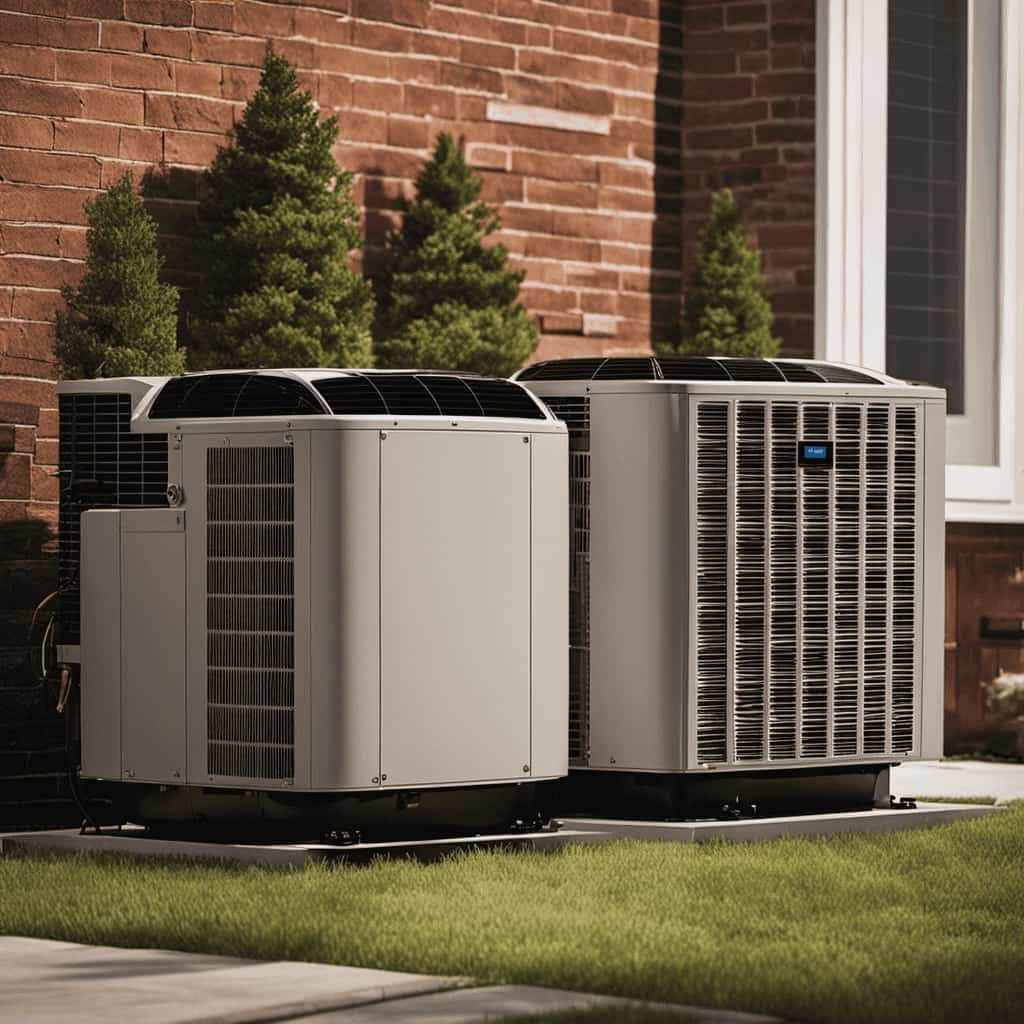
Frequently Asked Questions
What Is the Average Cost of Installing a Heat Pump System That Incorporates Solar Power?
The average cost of installing a heat pump system that incorporates solar power depends on various factors, such as the size of the system and any additional equipment required. The installation process involves connecting the solar panels to the heat pump and ensuring proper integration for maximum efficiency.
Are There Any Government Incentives or Tax Credits Available for Homeowners Who Invest in Renewable Energy Sources for Their Heat Pump Systems?
Yes, there are government incentives and tax credits available for homeowners who invest in renewable energy sources for their heat pump systems. These incentives and credits help boost efficiency and make green energy more affordable.
Can Wind Energy Be Harnessed Effectively in All Geographical Locations to Boost Heat Pump Performance?
Wind energy limitations and solar power efficiency vary based on geographical location. It’s important to assess the potential for harnessing wind energy effectively to boost heat pump performance.
How Does Geothermal Energy Compare to Other Renewable Energy Sources in Terms of Cost and Efficiency for Heat Pump Systems?
Geothermal energy comparison to other renewable sources for heat pump efficiency is important. Cost and efficiency vary depending on factors like location and system design. Understanding these differences can help optimize energy savings.
Are There Any Potential Drawbacks or Limitations to Using Green Energy Sources in Conjunction With Heat Pump Systems?
There can be potential drawbacks and limitations to integrating green energy sources with heat pump systems. It is important to consider the challenges and disadvantages in order to optimize the benefits and advantages.
How Can Green Energy Practices Improve the Refrigeration Cycle of a Heat Pump?
Green energy practices play a vital role in the heat pump efficiency optimization for refrigeration cycles. By integrating renewable energy sources like solar or geothermal, the heat pump can utilize clean energy to power its operation, reducing carbon emissions. This not only enhances the environmental impact but also improves the overall efficiency of the system. Implementing green energy practices enables heat pumps to operate at higher efficiencies, providing cost savings and contributing to a sustainable future.
How Can Green Energy Increase the Efficiency of Heat Pump HVAC Systems?
Green energy can significantly enhance the stunning efficiency of heat pump hvac systems. By utilizing renewable energy sources like solar or geothermal power, these systems become more sustainable and cost-effective. Green energy reduces dependence on fossil fuels, decreases carbon emissions, and lowers operating costs in the long run. Implementing green technologies is essential to achieve a cleaner and more efficient future for heat pump HVAC systems.
Conclusion
In conclusion, incorporating green energy sources such as solar power, wind energy, and geothermal energy into your heat pump system can significantly boost efficiency.
These renewable energy sources act as a catalyst, propelling your heat pump’s performance like a gust of wind filling its sails.
By harnessing the power of nature, you not only reduce your carbon footprint but also optimize your heat pump’s efficiency, saving both money and the environment in the process.
Installation and Maintenance of Heat Pumps
Examining Heat Pumps: An Affordable Energy Solution

Are you exhausted from constantly rising energy costs? Search no more! We have discovered the ideal solution: heat pumps.
These amazing devices not only save you money but also help protect the environment. With their energy efficiency and cost-effectiveness, heat pumps are a game-changer in the world of home heating and cooling.
Join us as we explore the benefits of heat pumps and discover why they are the affordable energy solution you’ve been waiting for.
Key Takeaways
- Heat pumps consume less energy compared to traditional heating and cooling systems.
- Heat pumps reduce greenhouse gas emissions and decrease reliance on fossil fuels.
- Conduct a cost analysis to determine the initial investment and payback period for installing a heat pump system.
- Evaluate the complexity and cost of installation, maintenance requirements, and availability of qualified technicians.
Energy Efficiency of Heat Pumps: A Cost-Effective Solution
We believe that using heat pumps is a cost-effective solution due to their energy efficiency. Heat pumps are designed to transfer heat from one place to another, using electricity as the main energy source.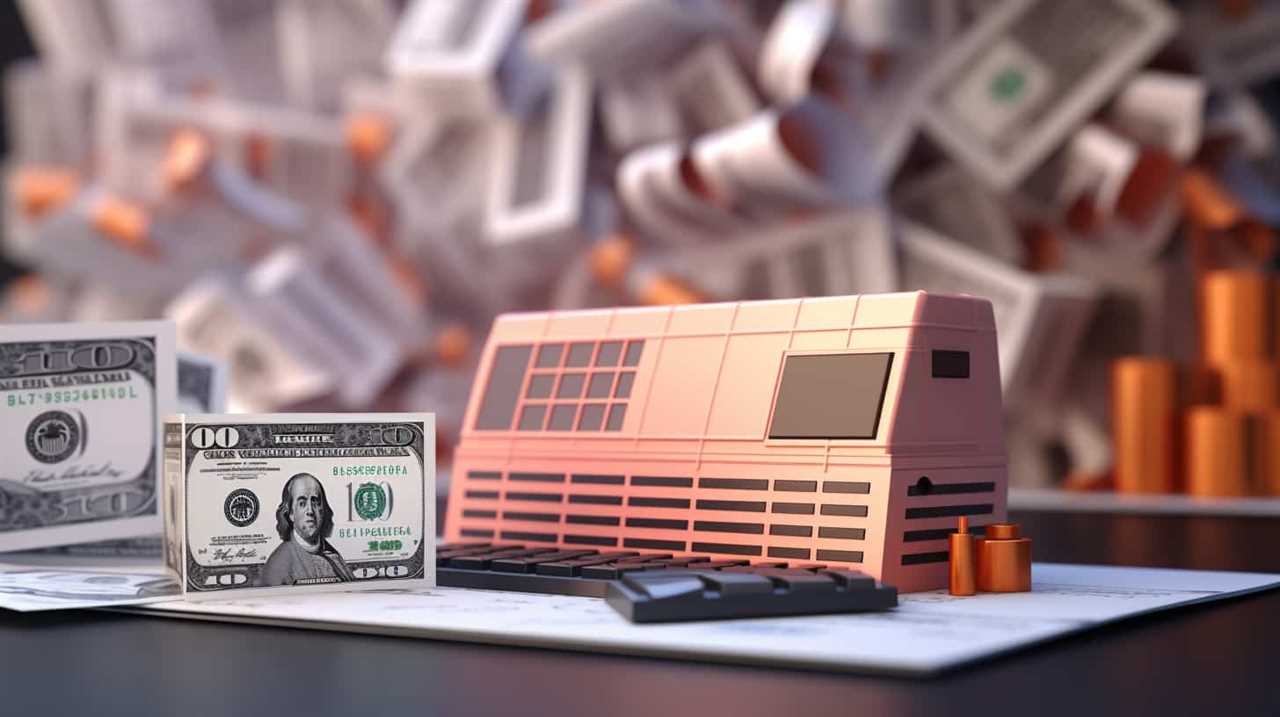
Compared to traditional heating and cooling systems, heat pumps can provide significant cost savings by consuming less energy. This is achieved through their unique ability to extract heat from the air, ground, or water, rather than generating heat through combustion or resistance.
Savings on Energy Bills With Heat Pumps
By using heat pumps, we can save money on our energy bills while enjoying an affordable and efficient energy solution. Heat pump technology offers significant energy savings compared to traditional heating and cooling systems. Here are some key factors that contribute to these savings:
Energy Efficiency: Heat pumps utilize renewable energy sources, such as air, water, or ground heat, to operate. This results in reduced energy consumption and lower utility bills.
Dual Functionality: Heat pumps can both heat and cool your home, eliminating the need for separate heating and cooling systems. This saves money on equipment costs and reduces energy usage.

Advanced Controls: Modern heat pumps come equipped with smart thermostat controls, allowing you to optimize energy usage based on your preferences and schedule. This further enhances energy savings.
Government Incentives: Many governments offer incentives, such as tax credits or rebates, for installing energy-efficient heat pumps. Taking advantage of these incentives can result in even greater savings.
With heat pump technology, homeowners can achieve substantial energy savings while enjoying a comfortable indoor environment.
Environmental Benefits of Energy Efficient Heat Pumps
With the use of energy efficient heat pumps, we can contribute to a cleaner environment by reducing greenhouse gas emissions and decreasing our reliance on fossil fuels.
Heat pumps are designed to transfer heat from one location to another, providing both heating and cooling functions. By harnessing renewable energy sources such as the air, ground, or water, heat pumps can significantly reduce carbon emissions compared to traditional heating and cooling systems.
The integration of renewable energy into the operation of heat pumps further enhances their environmental benefits. By utilizing clean and sustainable energy sources, heat pumps can help to reduce our carbon footprint and mitigate the impacts of climate change.
This innovative technology offers a promising solution for a greener and more sustainable future.
Return on Investment: Calculating the Cost-Benefit of Heat Pumps
As we evaluate the cost-benefit of heat pumps, it’s essential to calculate the return on investment to determine their long-term affordability and energy savings potential.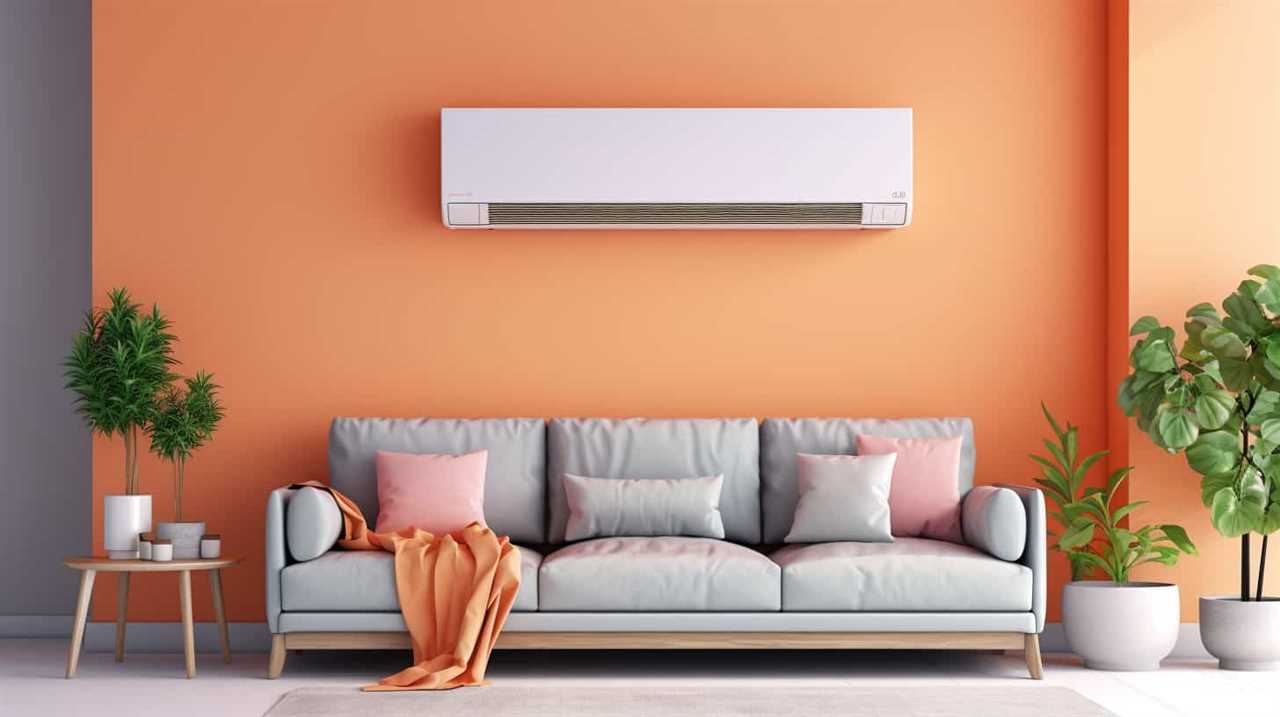
Conducting a thorough cost analysis helps us understand the initial investment required for purchasing and installing a heat pump system. This includes the cost of the unit itself, any additional equipment needed, and the expenses associated with professional installation.
Once the initial costs are determined, we can then assess the payback period, which is the time it takes for the energy savings to offset the initial investment.
Factors to Consider When Choosing an Energy Efficient Heat Pump
We frequently consider several factors when choosing an energy efficient heat pump.
One crucial factor is the installation process. It’s important to evaluate the complexity and cost of installation before making a decision. Some heat pumps require specialized equipment or extensive modifications to the existing heating system, which can increase both the time and expense of installation.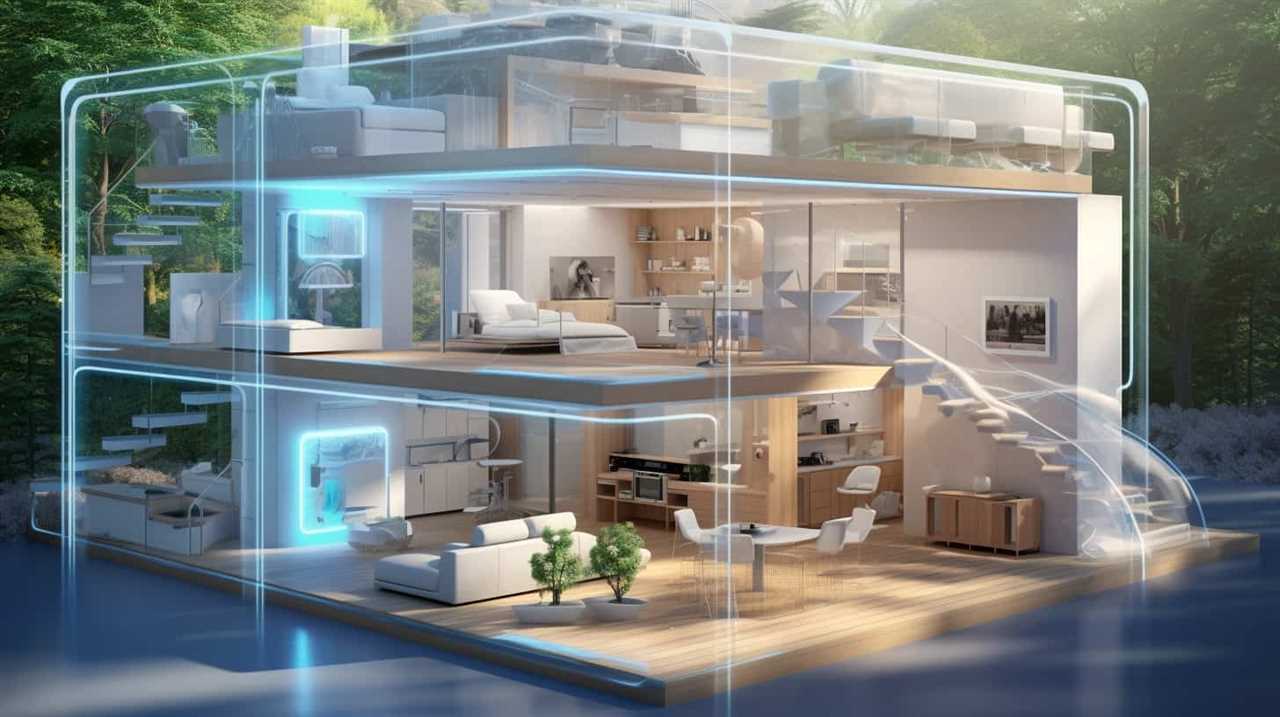
Another factor to consider is the maintenance requirements of the heat pump. Regular maintenance is essential to ensure optimal performance and longevity. It’s important to understand the recommended maintenance schedule and any associated costs. Additionally, consider the availability of qualified technicians who can perform the necessary maintenance tasks.
Frequently Asked Questions
What Is the Average Lifespan of a Heat Pump and How Does It Compare to Other Heating and Cooling Systems?
The average lifespan of a heat pump is comparable to other heating and cooling systems. In terms of energy efficiency ratings, heat pumps are highly efficient, making them a cost-effective and sustainable solution for energy needs.
Are There Any Government Incentives or Rebates Available for Installing Energy Efficient Heat Pumps?
Yes, there are government incentives and rebates available for installing energy efficient heat pumps. These incentives encourage homeowners to adopt sustainable energy solutions and can significantly offset the initial cost of installation.
Can a Heat Pump Effectively Cool a Home in Hot Climates?
Yes, a heat pump can effectively cool a home in hot climates. The heat pump’s efficiency allows it to extract heat from the indoor air and transfer it outside, providing a comfortable and energy-efficient cooling solution.
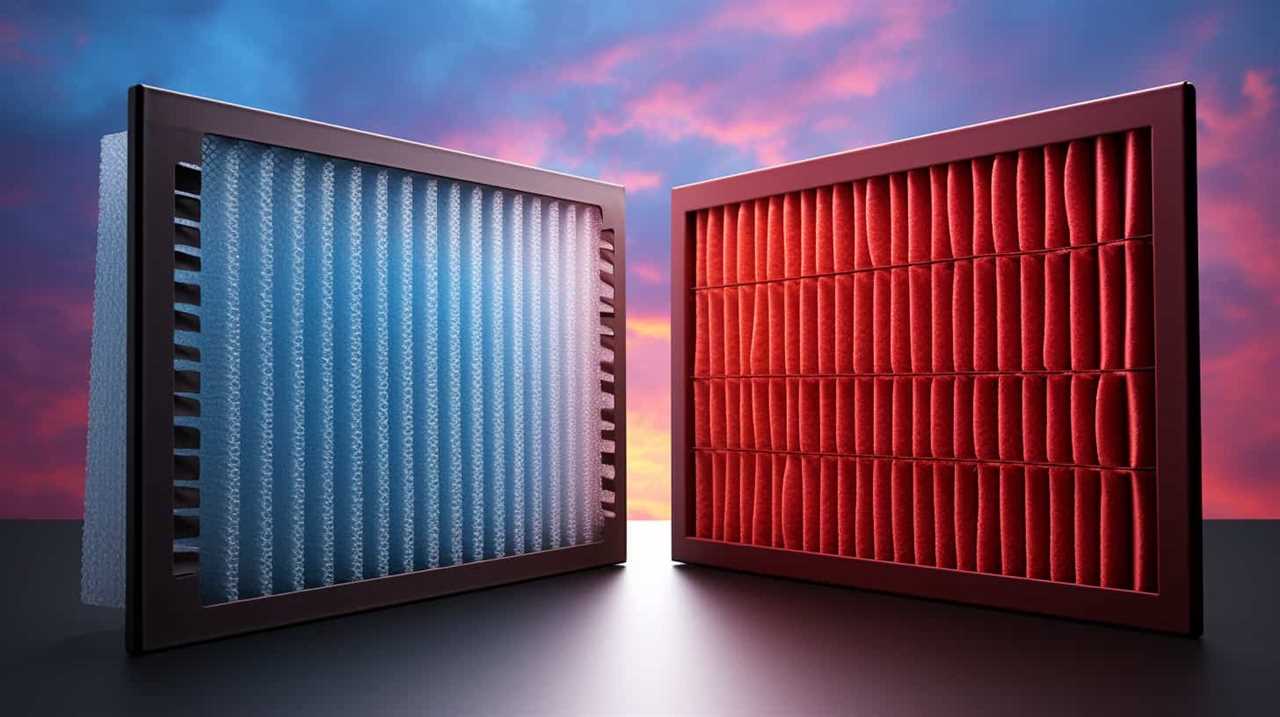
How Noisy Are Heat Pumps When They Are Operating?
Heat pump noise levels can vary depending on factors such as the model, installation, and maintenance. However, there are effective heat pump noise reduction techniques available, such as sound barriers and vibration isolation.
Are There Any Maintenance Requirements or Costs Associated With Owning a Heat Pump?
There are maintenance requirements and costs associated with owning a heat pump. Regular maintenance, such as cleaning and checking the filters, is necessary to ensure efficient operation. Additionally, there may be costs for repairs or professional servicing.
What Makes Heat Pumps a Viable Option in Renewable Energy Systems?
Heat pumps in renewable energy systems offer a viable solution for reducing greenhouse gas emissions. These pumps capitalize on the natural heat from the environment and transfer it indoors, providing efficient heating and cooling. By utilizing renewable energy sources such as air, water, or geothermal, heat pumps can significantly reduce reliance on fossil fuels, making them an environmentally friendly option. Furthermore, their ability to operate in various climates and provide year-round comfort makes heat pumps a practical choice for sustainable energy systems.
What are the Benefits of Using Efficient Heat Pumps to Cut Power Costs?
Efficient heat pumps are a valuable investment for reducing power costs. These pumps transfer heat from one area to another, providing both heating and cooling capabilities. By utilizing the outside air to heat or cool your home, they consume less energy than traditional HVAC systems. Additionally, efficient heat pumps offer zoning options, allowing you to control the temperature in specific areas, saving even more on energy consumption. Embracing these pumps not only cuts power costs, but also promotes sustainability.
Are Energy-Efficient Heat Pumps an Affordable Solution for Fixing Climate Control?
Energy-efficient heat pumps are an affordable solution for fixing climate control issues. These pumps effectively heat or cool spaces by transferring heat from one area to another, unlike traditional heating and cooling systems. With their advanced technology, energy-efficient heat pumps offer cost savings due to their lower energy consumption. They are an ideal choice for environmentally conscious individuals looking for efficient climate control solutions.
Conclusion
In conclusion, heat pumps offer a promising solution for affordable and energy-efficient heating and cooling. Symbolizing progress and sustainability, these innovative devices can significantly reduce energy consumption and lower utility bills.
By considering factors such as energy efficiency ratings, environmental benefits, and return on investment, individuals can make informed decisions when selecting an energy-efficient heat pump.
Embracing this technology isn’t only cost-effective but also a step towards a greener and more sustainable future.
-

 Residential and Commercial Applications2 weeks ago
Residential and Commercial Applications2 weeks agoBest Amana Heat Pump Reviews
-

 Thermal Energy Transfer2 weeks ago
Thermal Energy Transfer2 weeks agoBreakthroughs in Modern Heat Pump Systems: Thermal Energy Edition
-

 Residential and Commercial Applications2 weeks ago
Residential and Commercial Applications2 weeks agoBest Heat Pump
-

 Geothermal Heat Pumps3 months ago
Geothermal Heat Pumps3 months agoUpgrade Your Comfort with Our Efficient HVAC Systems
-

 Air Conditioning3 months ago
Air Conditioning3 months agoExploring Energy-Efficient Air Conditioning Heat Pumps
-

 Geothermal Heat Pumps3 months ago
Geothermal Heat Pumps3 months agoInnovative Geothermal Heat Pump Manufacturers Revolutionize Energy Efficiency
-

 Thermal Energy Transfer1 month ago
Thermal Energy Transfer1 month agoBoost Your Heat Pump Efficiency: Interactive Guide
-

 Residential and Commercial Applications2 weeks ago
Residential and Commercial Applications2 weeks agoBest Portable Heat Pump Heat & AC










